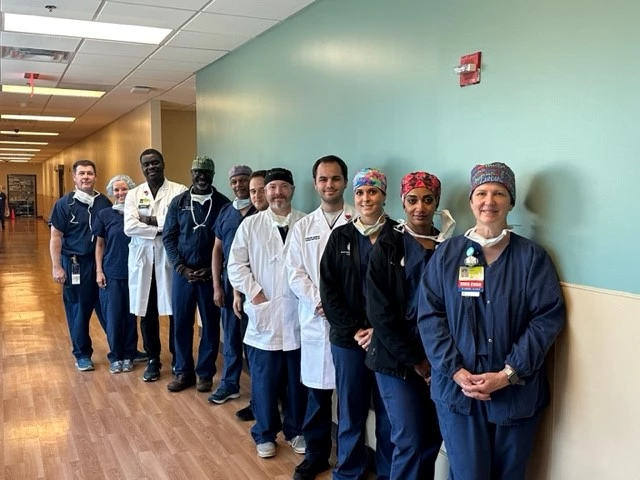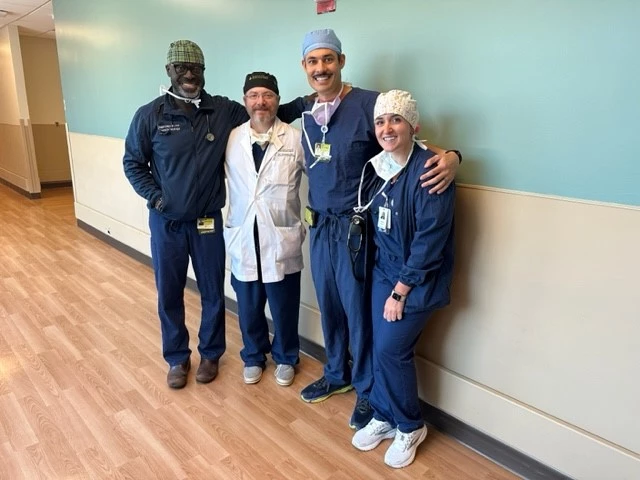This past July marked a milestone for Georgia Heart Institute’s Heart Failure team and Northeast Georgia Physicians Group (NGPG) Cardiovascular Surgeons. Georgia Heart Institute’s first Barostim implant surgery was performed and completed with success, further advancing the level of care and expanding the variety of options for patients living with heart failure in northeast Georgia.

Led by Georgia Heart Institute’s Medical Director of the Heart Failure Treatment & Recovery Center, Ugochukwu Egolum, MD, FACC, along with fellow heart failure doctors Giancarlo Acosta, MD, and Vikram Raje, DO, greet patients using a comprehensive and collaborative approach. This first initial patient presented with typical symptoms of cardiovascular concern including shortness of breath and experiencing fatigue while doing simple, daily activities. Primary screenings were ordered such as a carotid duplex to ensure no major blockages were reported (<50%), an echocardiogram to again confirm that there were no causes for intervention, followed by testing for valvular disease. After a final B-type natriuretic peptide (NT-proBNP) test resulting in <1,600 pg/mL, Barostim was considered.
Further criteria for this patient were met due to being prescribed
medication therapies with no relief of symptoms and overall feelings of
unwellness. Despite all these efforts, in conjunction with this patient not being a candidate for a left ventricular assist device (LVAD) or heart transplant, a referral for a Barostim implant surgery was his best option. NGPG Cardiovascular surgeon, R. Kyle Thompson, MD, Surgical Director of Advanced Heart Failure, completed the procedure and reports a successful outcome.

“We are proud to be one of a few centers in Georgia offering the
Barostim implant device,” says Dr. Giancarlo Acosta, one of Georgia
Heart Institute’s heart failure doctors. “It is indicated in patients with HFrEF (Heart failure with reduced ejection fraction) who remain symptomatic despite medical therapy and who are not candidates for CRT (Cardiac re-synchronization therapy) that the results of this therapy are impressive in terms of improving exercise capacity, NYHA (New York Heart Association) class, and quality of life as well as reducing levels of NT-proBNP. It is another resource available to help our patients feel better, be more active alter the course of the disease.”
To refer a patient to the Heart Failure Treatment & Recovery Center, visit our clinician site.